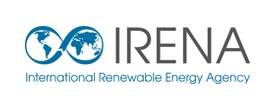On August 3rd, 2017, the Missouri Public Service Commission (PSC) heard oral arguments relating to the Grain Belt Express case. If approved by the PSC, the Grain Belt Express wind transmission line would be Missouri's largest clean energy infrastructure project and would save Missouri municipal ratepayers more than $10 million annually.
In July, the Commission requested supplemental briefs from the parties to the Grain Belt Express case regarding the recent court case overturning the PSC approval of the Ameren Mark Twain transmission project. The Missouri Western District Court of Appeals overturned the PSC approval of the Ameren Mark Twain project stating the Commission improperly conditioned their order relating to county road crossing approvals. Following the appellate court decision on the Mark Twain project, the PSC asked parties to provide their input on the effect that decision may or may not have on the Grain Belt Express project.
Briefs were submitted by: Grain Belt Express, Missouri Joint Municipal Electric Utility Commission (MJMEUC), NRDC, Sierra Club, Renew Missouri, IBEW Unions, Wind on the Wires, The Wind Coalition, Missouri PSC Staff, Show Me Concerned Landowners, and the Missouri Landowners Alliance.
At today's hearing, representatives from MJMEUC, Grain Belt Express and NRDC and others urged the Missouri PSC to maintain its 100+ year old authority in overseeing infrastructure for the state of Missouri and move forward with making a decision on the Grain Belt Express case. These parties outlined how the Commission's Order in the Mark Twain case led to the court's decision and how the PSC can distinguish the order in the case of Grain Belt Express to ensure they retain rightful oversight of utility infrastructure in Missouri, including new transmission lines and intrastate crude and distillate pipelines.
Following are quotes from parties who urged the Commission to move forward with granting Grain Belt Express a Certificate of Convenience and Necessity:
MJMEUC: "Over one hundred years ago, this Commission was vested with the authority to permit the construction of electric transmission lines, and nothing in the recently-final decision in the Ameren Transmission Co. case changes that law or fact .our Legislature clearly intended this Commission, as opposed to any other entity including county commissions, to be the decision-maker regarding the construction and location of a line to transmit electricity across the state. On behalf of no less than Centralia, Columbia, Hannibal, Kirkwood, the 35 MoPEP cities, and these cities' hundreds of thousands of citizens, MJMEUC respectfully requests that this Commission timely find that the Grain Belt Project is necessary and convenient for the public service and issue to Grain Belt the requested and fully-effective certificate of convenience and necessity."
NRDC, Sierra Club, Renew Missouri, IBEW Unions, Wind on the Wires, and The Wind Coalition: "Grain Belt Express has met the Tartan criteria, and, given the stakes for Grain Belt Express, its investors and the municipal utilities that wish to subscribe to the line, and the public interest in clean and affordable power, the Commission should grant the CCN or make clear that it will grant it if the resolution of the county assent issue permits. A municipality may have unfettered discretion to deny a franchise to serve its territory, but the same does not apply to a county. A county may not deny assent just because it comes under political pressure from landowners. Any denial must have a basis in the county's highway regulations. The most troubling aspect of this case is the possibility that a single county could torpedo a four-state transmission line for which Grain Belt Express already has rate approval from FERC."
Grain Belt Express: "Preventing this project from moving forward would announce to the world that investments designed to bring low-cost energy and other benefits to Missouri customers are now subject to the politics of a few county commissions, and that developers and investors contemplating infrastructure projects should not come to Missouri. Such an outcome would be contrary to the precepts under which this Commission has long operated, contrary to Missouri law, and inconsistent with good government and sound public policy."
Other Missourians who have demonstrated support of building the wind transmission line include ratepayers, manufacturers, energy producers, business groups, organized labor, Fortune 500 companies, environmental interests and retailers.
Additional groups who participated in the case in support of the project include:
- Missouri Department of Economic Development
- Consumers Council of Missouri
- Missouri Industrial Energy Consumers
- Missouri Retailers Association
- Walmart
- SSM Health
- Infinity Wind Power
- Missouri AFL-CIO
The Grain Belt Express is privately financed and once constructed, will be the largest clean energy infrastructure project in Missouri's history.
To learn more about the Grain Belt Express Clean Line, visit www.GrainBeltExpressCleanLine.com.
About Clean Line Energy Partners
Clean Line's mission is to connect abundant, renewable energy resources to areas that have a high demand for clean, reliable energy. Clean Line is developing a series of projects to move renewable energy to market. For more information, please visit www.CleanLineEnergy.com.
Contact
Jack Cardetti
Tightline Strategies
(573) 680-4009 cell
jcardetti@tightlinestrategies.com









